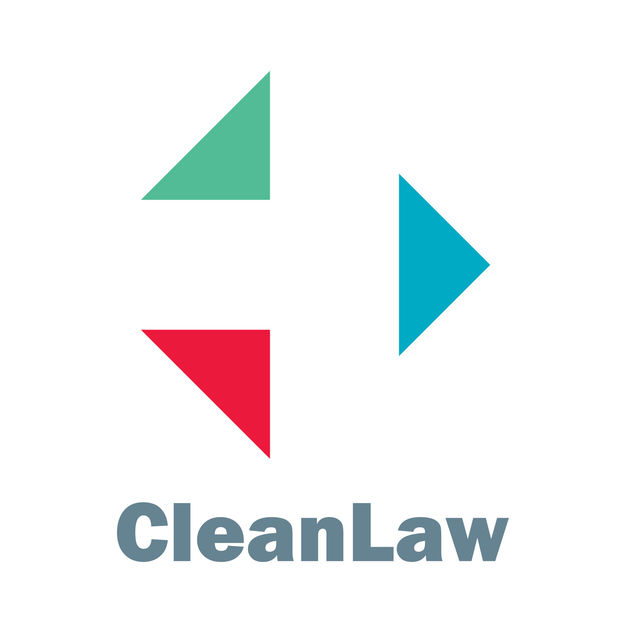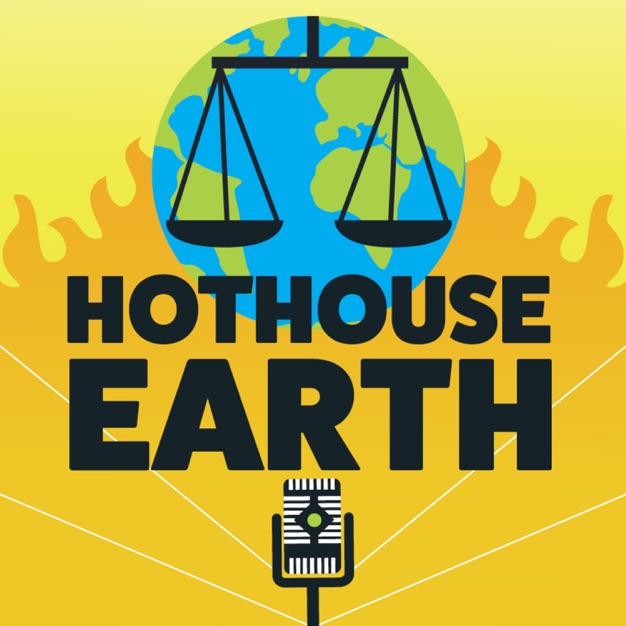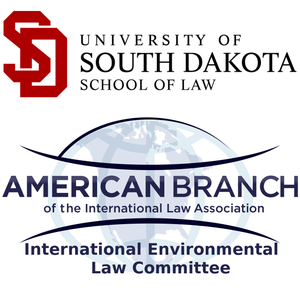
People Places Planet Podcast
Colin Gipson-Tansil
Welcome to People Places Planet Podcast, the official podcast of the Environmental Law Institute, a nonprofit, nonpartisan organization working to ensure a healthy environment, prosperous economies, and vibrant communities, founded on the rule of law..
- 46 minutes 3 secondsWhat's the Buzz? Legal and Scientific Frameworks for Pollinator Conservation
Bees and other pollinators are vital to ecosystems and agriculture, yet their populations face mounting threats from climate change, habitat loss, and pesticide use. In this episode of People Places Planet, Rebecca Riley, Managing Director of Food and Agriculture at the Natural Resources Defense Council, and Saff Killingsworth, an Endangered Species Conservation Biologist at the Xerces Society, join host Dara Albrecht to explore how legal frameworks and science intersect to address these challenges. They discuss legislative milestones like New York’s Birds and Bees Protection Act, the role of extinction risk assessments, and how scientific research on pollinator behavior and habitat can shape effective policies. This episode details the importance of science-informed legal frameworks in safeguarding pollinators and the ecosystems they support.
★ Support this podcast ★29 January 2025, 4:00 pm - 38 minutes 6 secondsHeld v. Montana: A 2025 Update
In this special update episode of People Places Planet, host Dara Albrecht revisits the landmark youth-led climate case, Held v. State of Montana, after the Montana Supreme Court's ruling in December 2024. Building on the original September 2023 episode, ELI Senior Attorney and Director of the Climate Judiciary Project Helene Krasnoff joins returning ELI Staff Attorney Jarryd Page in conversation with Dara to discuss the Montana Supreme Court's recent decision affirming the trial court’s ruling in favor of the youth plaintiffs. The episode explores the legal significance of the ruling, how Montana agencies are beginning to incorporate climate considerations into environmental reviews, and the broader implications for climate litigation nationwide. Stay tuned after the update to hear the original episode featuring former host Sarah Backer, Jarryd Page, and Science and Policy Analyst John Doherty for foundational insights into the case.
★ Support this podcast ★15 January 2025, 4:10 pm - 45 minutes 56 secondsWater, Borders, and Diplomacy: A Conversation with IBWC Commissioner Giner
The International Boundary and Water Commission (IBWC) plays a crucial role in managing U.S.-Mexico border water resources, overseeing treaties that impact millions of people. In this episode of People Places Planet, Commissioner Maria Elena Giner, a civil engineer and veteran in border environmental issues, joins host Dara Albrecht to discuss the IBWC's efforts to address challenges like water scarcity, infrastructure needs, and binational cooperation. They explore groundbreaking agreements like Minute 331, which brings greater predictability to water deliveries from Mexico, and the IBWC's strategies for building climate resilience. This episode provides insight into how legal frameworks, technical expertise, and cross-border collaboration are driving solutions to complex water management challenges in border communities.
★ Support this podcast ★8 January 2025, 4:00 pm - 49 minutes 55 secondsAI and the Environment: Balancing Demands, Challenges, and Opportunities
Data centers supporting artificial intelligence consume staggering amounts of electricity, with their energy demands projected to potentially account for up to 10% of total U.S. electricity consumption by 2030—posing both challenges and opportunities for clean energy goals. In this episode of People Places Planet, Jed Anderson, CEO and founder of EnviroAI, and Bob Sussman, a seasoned environmental lawyer and former senior EPA official, join host Dara Albrecht to explore the intersection of AI and the environment. They discuss how AI is transforming environmental protection, from enabling real-time regulatory improvements to empowering under-resourced communities. The conversation also examines the risks posed by AI's energy consumption and its role in climate change, as well as the potential for AI to revolutionize environmental law and sustainability efforts.
★ Support this podcast ★18 December 2024, 4:00 pm - 18 minutes 49 secondsEnvironmental Justice: The State-Level Perspective
More than 35 states have introduced or drafted environmental justice laws as of 2023, and 14 of those states have implemented at least 21 new laws focused on environmental justice. In this episode of People Places Planet, ELI's Environmental Justice Law Clerk, Juliette Stanley, joins host Dara Albrecht to discuss environmental justice policies on the state level, and how they might be impacting change nationwide. They review the current landscape of environmental justice on the national and state levels and explore how past events shape current actions of states on this issue.
★ Support this podcast ★4 December 2024, 7:00 pm - 16 minutesELI Intern Minisode: The 30x30 Initiative in California and Environmental Justice in the Farm Bill
At the Environmental Law Institute, interns have the opportunity to develop independent research projects based off their interests. In this episode of the People Places Planet Podcast, ELI’s summer interns, Sarah Cheung and Aneeza Ahmad, join host Dara Albrecht to share more about who they are, their independent research on the 30x30 Initiative in California and on Environmental Justice in the Farm Bill, and lessons they've taken from their time at ELI.
★ Support this podcast ★1 November 2024, 8:35 pm - 18 minutes 55 secondsHere's To New Adventures: Farewell to Our 2022 Research Associates
In this week’s episode of People Places Planet Podcast, three of ELI's four outgoing Research Associates (Sarah Backer, Ella Stack, and Tori Rickman) sit down with host Dara Albrecht to reflect on their experiences as Research Associates. The three share who they are, what brought them to ELI, the research projects they worked on, and the lessons they will take with them moving forward.
★ Support this podcast ★30 October 2024, 3:00 pm - 36 minutes 54 secondsPlanted! How Local Governments are Increasing the Availability of Plant-Based Proteins to Reduce Emissions from Food
Many municipal buildings, schools, hospitals, restaurants, and workplace cafeterias do not offer plant-based entrees. Making plant-based meals the default or even simply offering a plant-based option can help to reduce food-related emissions. In this episode, hosts Sarah Backer and Linda Breggin explore the rang of actions in municipal climate action plans aimed at increasing the availability of plant-based proteins. Hear from Rachel Atcheson about how New York City is reducing their emissions while saving on food costs, from Angela Baucom on how Austin is promoting food equity, and from Katie Cantrell on the different behavioral science strategies local governments can use to reduce food-related emissions.
This podcast was created in conjunction with ELI’s Toolkit for Incorporating Plant-Based Protein Measures in Municipal Climate Action Plans.
★ Support this podcast ★16 October 2024, 8:32 pm - 42 minutes 52 secondsPlanted! How Local Governments are Engaging the Public on the Benefits of Plant-Based Proteins
There are myriad ways to engage the public on the climate, health, and other benefits of plant-based proteins—from launching awareness campaigns to providing food sampling opportunities at municipal events. In this podcast, Sarah Backer and Linda Breggin learn about the efforts of a local government and nonprofit as well as get advice from a social psychology expert about how research findings can inform engagement strategies. Hear from Sarah Gardner about how Iowa City is partnering with farmers markets and other community organizations, Naijha Wright-Brown on how her non-profit launched a plant-based Restaurant Week in Baltimore, and from Toby Park on the most effective messaging and other strategies.
★ Support this podcast ★3 October 2024, 4:38 pm - 36 minutes 7 secondsPlanted! How Local Governments Can Measure and Tackle Food-Related Emissions
Very few municipal sustainability initiatives to date have focused on food-related emissions and specifically the relatively low carbon footprint of plant-based proteins, despite the fact that food accounts for over 25% of the average American household’s carbon footprint. And research indicates that without lowering the emissions associated with food consumption, we will be unable to meet global climate targets. In this episode, hosts Sarah Backer and Linda Breggin seek to understand why localities have been slow to move on reducing carbon emissions related to food consumption and speak to local governments that are leading the way on measuring, tracking, and reducing those emissions. Tune in to learn more about consumption-based emissions inventories from Angie Fyfe at ICLEI; DC’s approach to measuring emissions from municipal food purchasing from Alyssa Wooden; and Carrboro, North Carolina’s goal to reduce emissions from diets by 80% by 2030 from Laura Janway.
This podcast was created in conjunction with ELI’s Toolkit for Incorporating Plant-Based Protein Measures in Municipal Climate Action Plans.
★ Support this podcast ★11 September 2024, 3:00 pm - 22 minutes 32 secondsState of the Environment: How States Are Leading the Charge on Environmental Protection (feat. Elizabeth Biser and Ben Grumbles)
Over 90% of US primary environmental laws are implemented and enforced at the state level. The Environmental Council of the States (ECOS) plays a critical role in empowering state environmental agencies and program leaders to improve human health and protect the environment. Elizabeth Biser, ECOS President and Secretary of North Carolina Department of Environmental Quality, joins the podcast with Ben Grumbles, Executive Director of ECOS, to discuss the importance of state environmental programs, the challenges they face, and how ECOS is building environmental partnerships for success.
★ Support this podcast ★4 September 2024, 4:03 pm - More Episodes? Get the App
Your feedback is valuable to us. Should you encounter any bugs, glitches, lack of functionality or other problems, please email us on [email protected] or join Moon.FM Telegram Group where you can talk directly to the dev team who are happy to answer any queries.
 CleanLaw
CleanLaw
 Hothouse Earth
Hothouse Earth
 Broken Ground
Broken Ground
 The Global Energy & Environmental Law Podcast
The Global Energy & Environmental Law Podcast